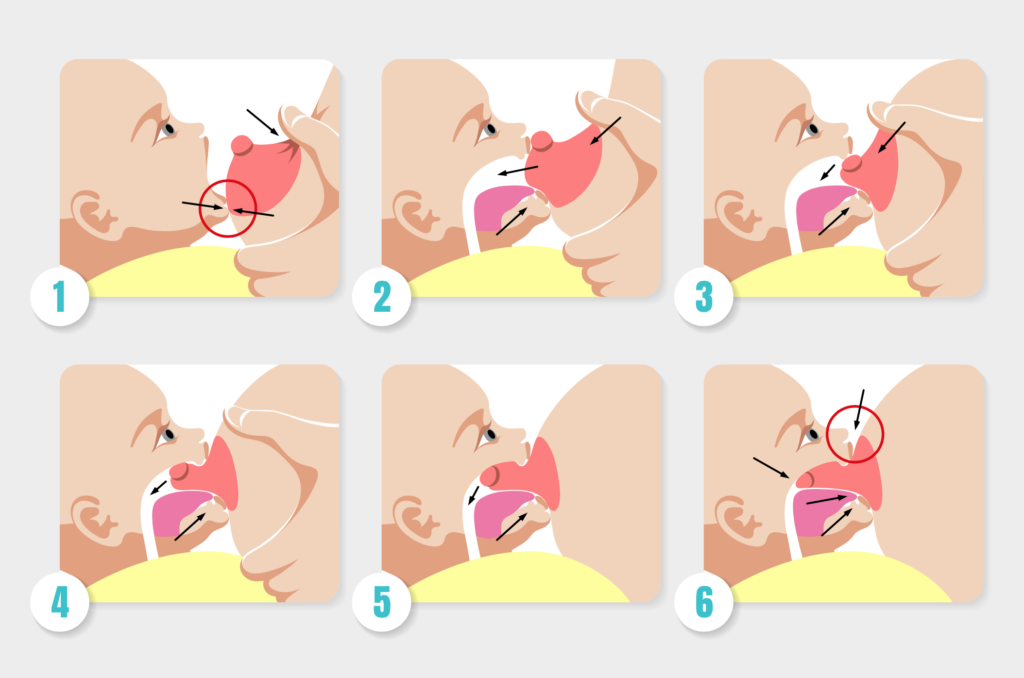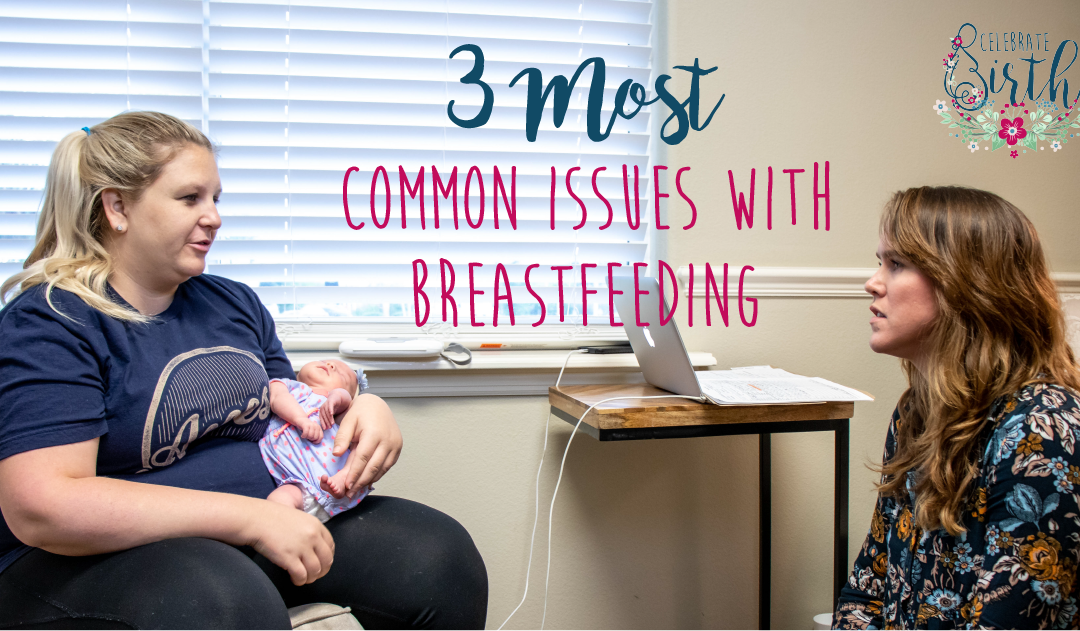3 Most Common Issues with Breastfeeding
The postpartum period is not always an easy time to get through, especially for first-time mothers. One of the most common areas new moms tend to face problems with is breastfeeding. While it comes naturally to some mothers, it might pose a significant challenge for others.
Breastfeeding is Important
Breastfeeding has important benefits for both the mother and child. Not only does it provide important nutrition and helps to grow the mother-child bond, studies have shown that breastfed babies have stronger immune systems and thrive more easily. In addition, mothers who breastfeed have a lower risk of developing Type 2 Diabetes and breast cancer. Addressing any problems you might be facing and solving them early on is not only crucial for meeting your breastfeeding goals, but also for taking advantage of these health benefits.
Common Issues While Breastfeeding
Some of the most common issues women face while breastfeeding include:
-
Positioning:
Latching the baby onto the breast properly is important to effectively express breastmilk and feed the baby easily and comfortably. To latch properly, the positioning of the baby must be taken into consideration.
When first breastfeeding, bring your baby up to the breast, instead of leaning over to offer your breast to your baby while holding them in your lap. You’ll want your baby to be as close as possible in order to get a good latch. To do this, first, make sure your baby is relaxed. Then angle their head so that it is slightly extended, making sure that both the head and the body are at breast level. Then, offer them the breast using a “C” hold, with the nipple pointed towards the roof of their mouth. Adjust the position as needed until your baby can latch onto the breast easily.

A good way to think about it is that the baby’s body should be like a starfish laying up against the mother’s body, while the baby latches on to the breast and not just the nipple. Watch this video for a demonstration on how to get a correct latch!
-
Supply:
After birth, your body will go through a hormonal shift. Progesterone and estrogen decrease while oxytocin and prolactin increase. While your body is going through this shift, it is preparing for your mature milk to “come in.” For most moms, this happens between 2 and 5 days after the delivery, but in the meantime your body will be producing colostrum right away, which has its own unique benefits for the baby!
After a baby is born, they will typically lose between 7 and 10% of their weight within the first couple of days. As your milk comes in, they will be gaining that weight back (and more). To establish a strong supply for what is needed, the baby should be fed on demand, or at least every 2 to 3 hours for the first few weeks as they get back up to their birth weight, ideally by 2 weeks of age. After reaching that milestone, the baby should continue to be fed on demand to maintain that supply.
If for some reason you can’t breastfeed your baby every 2-3 hours, make sure to invest in a quality breast pump so you can express milk on that schedule. This may help to ensure an adequate supply for the baby while also preventing milk retention in your breast.
Please note: If you have an endocrine disorder such as PCOS, diabetes, or thyroid dysfunction, reach out to your care provider to discuss the ways this may impact your breastfeeding journey. It is common for those disorders to affect breast development and milk supply, but working with a lactation specialist during your pregnancy and/or soon after your baby arrives can help you create a plan for success.
-
Oral Structure Abnormalities:
If your baby is unable to nurse well despite proper positioning and an ample supply, you might want to see if he or she has an underlying issue that could be the cause. A tongue or lip tie, or some other type of oral dysfunction, could be at fault. While they might be completely asymptomatic in some babies, they could pose challenges with breastfeeding with other babies. If you suspect there might be a structural abnormality that is causing difficulty while nursing, reach out to a lactation specialist who has been trained to assess such things.
It’s Okay To Ask For Help!
If you’re facing issues other than those listed above, or need help regarding any aspect of breastfeeding, we highly advise that you seek help from a lactation expert. Also, keep in mind that taking a breastfeeding class is an option for you even after your baby has arrived. Studies show that taking such a class greatly increases your chance of achieving your breastfeeding goals, no matter what they are!
If you’re having trouble with breastfeeding, seek help early on to correct any problems that might be causing issues with pain, supply, or slow weight gain in the baby. Breastfeeding can take some time to perfect and it doesn’t start off easily for many women, but it shouldn’t be so difficult that it prevents you from enjoying the experience. Let the lactation specialists at The Nest help!

